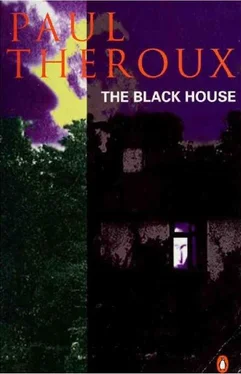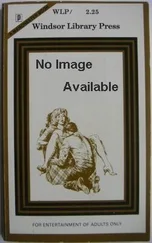Paul Theroux - The Black House
Здесь есть возможность читать онлайн «Paul Theroux - The Black House» весь текст электронной книги совершенно бесплатно (целиком полную версию без сокращений). В некоторых случаях можно слушать аудио, скачать через торрент в формате fb2 и присутствует краткое содержание. Год выпуска: 1996, Издательство: Penguin Books, Жанр: Современная проза, на английском языке. Описание произведения, (предисловие) а так же отзывы посетителей доступны на портале библиотеки ЛибКат.
- Название:The Black House
- Автор:
- Издательство:Penguin Books
- Жанр:
- Год:1996
- ISBN:нет данных
- Рейтинг книги:4 / 5. Голосов: 1
-
Избранное:Добавить в избранное
- Отзывы:
-
Ваша оценка:
- 80
- 1
- 2
- 3
- 4
- 5
The Black House: краткое содержание, описание и аннотация
Предлагаем к чтению аннотацию, описание, краткое содержание или предисловие (зависит от того, что написал сам автор книги «The Black House»). Если вы не нашли необходимую информацию о книге — напишите в комментариях, мы постараемся отыскать её.
The Black House — читать онлайн бесплатно полную книгу (весь текст) целиком
Ниже представлен текст книги, разбитый по страницам. Система сохранения места последней прочитанной страницы, позволяет с удобством читать онлайн бесплатно книгу «The Black House», без необходимости каждый раз заново искать на чём Вы остановились. Поставьте закладку, и сможете в любой момент перейти на страницу, на которой закончили чтение.
Интервал:
Закладка:
5
The Bowood House described in the letter the landlord’s agent had sent when requesting a deposit for breakage and the first month’s rent was not the Bowood House the Mundays carried their suitcases into —baggage tags fluttering from the handles—that dark rainy day towards the middle of November. In Uganda, and in the cramped London hotel, Munday had read the letter aloud to Emma, and he had pored over it alone many times, relishing the phrases that were used so casually by the agent. The description interested and excited him, generated a feeling of expectancy, a foreknowledge of comfort, that was some consolation for the disappointment he had felt on being told he would have to leave the African village and move out of the bungalow at the Yellow Fever Camp. (“That heart of yours,” Father Dowle, the mission doctor, had said.) And having used the address of Bowood House on his letter to The Times he had committed himself, before moving in, to a fixed image in his mind. He had a settled feeling about the place and its dimensions, as if he had already lived in it and knew its separate warm rooms: there were four bedrooms and a box room, a “snug” kitchen with, “units,” a “sunny” breakfast room, a studio (where he saw himself at work), an inglenook. There were “j>ower points” in every room (“Imagine, Emma,” he had said, “power points!”—but the joke was wearing thin). Outside, there was a “courtyard,” and part of the house was “rendered.” There were “outbuildings” on the “grounds” and trees at the bottom of the garden which, the agent promised, bore soft fruit.
Mr. Flack said, “You’re not seeing it at its best.” He had put on his peaked cap and, hunched over the steering wheel, driven the Mundays to the house in his old black Humber. That morning a letter had come from the freight forwarders saying that the nine cases were on their way to Four Ashes.
Mr. Flack said, “The rain.” He leaned back and squinted at the gray pouring sky as if to determine how long it would last.
“A Bwamba would call this rain a good omen,” said Munday. But he felt differently about it. He looked at the house. He did not want to go inside.
Mr. Flack said, “It’s got bags of character.”
Emma agreed. Munday heard her say, “Charming.”
“Thanks for the lift, Flack,” said Munday, and, already feeling let down, quickly sent the old man away so that he would not be able to report on their disappointment. The wind blew the rain against the trees and knocked shriveled leaves into the shallow courtyard puddles where some stuck and some floated. Behind them on the far side of the road the limbs of a stripped tree howled; the wind came in gusts, rain in rushing air, emptying the trees and pulling at their branches and blackening their trunks.
Even when Mr. Flack had gone the Mundays remained on the roadside, trying to make sense of the agent’s letter by comprehending the house. The sight of it was like an incomplete memory, the sort an adult has, faced with his childhood house: unfamiliar details Were intrusive and disturbing, the size, the color, the position, some black front windows with drawn curtains, the chimneys—absurdly, Munday had imagined smoke coming from the chimneys, and these cold bricks with empty orange flues depressed him and spoiled the memory.
The house looked small. Munday had not expected that nor its unusual position, directly on the narrow road; one long wall was flush with the road (leaves collecting at the foundation where it formed a gutter), and a high bushy bank, the edge of a field, rose up behind, dwarfing the house. It gave the impression of having once had some definite purpose on the road: the stone shed might have been a smithy’s or wheelwright’s.
“I don’t imagine it made any difference when the only traffic was a wagon passing once a day—” Munday continued speaking but his words were lost in the engine roar and hissing tires of a truck which passed just then, its green canvas bellying on top and flapping at the back. Munday finished hopelessly, “—stand this.”
The house was of stone, and squat, with a slate roof, the black slates shining in the rain; a sharp scalloped ridge on the roof peak was its only elegance. It was set plumply against the bank and looked older than that bank, as if the back pasture had risen, the verge at either end lifted in a grassy swell, sinking the house into the earth. The walls absorbed the damp differently, the pale new stone moistened like sand, the dark and almost black old stone, the brown hamstone extension at the back which was the bathroom and toilet (“low-flush,” the letter said) replacing the roofless brick shed half-hidden in tangled briars and a mature holly tree in the back garden. There was also a recent and unattractive coal shed across the courtyard, its cement blocks stained unevenly with wetness. The rain and damp defined the portions of the house by shading their ages variously, and the side that faced the road was darkened by soot and exhaust fumes, the stone foundation covered by dry inland limpets and a deep green moss like patches of felt, the shade of the cushions on the billiard table at The Yew Tree.
“Courtyard,” said Munday, kicking open the iron gate. The gate made a grinding sound as Munday walked across the flagstones. A puddle at the entrance was being filled by a gurgling drain-spout. “Double doors,” he said, fumbing with the large latchkey. He entered the gritty hall with its ragged rope mat, then the chilly damp kitchen. He taught himself the meanings, bitterly, by sight. Now he knew “snug” meant tiny and “character” inconvenience and “charming” old; the ceiling was low, and though it was unnecessary for him to do so—he was not tall—he stooped, oppressed by the confining room and making his irritation into a posture. He glanced around; he said, “Sunny breakfast room.” The house was cold and held a musty stale odor that not even the draft from the open door freshened—an alien smell, not theirs.
Munday came to attention before a still clock on a kitchen shelf which showed the wrong time on a bloodied face. He was afraid and heard his heart and felt it enlarge. He recovered, saw the rust, and feeling foolish went to the sink which was coated in grime. He turned on the faucet; it choked and spat, brown water bubbled out and patterned rivulets into the grime, and then it became colorless and Munday shut it off. What a stubborn place, he thought. He tried the lights; they worked. He opened the oven door, the furnace door, a cupboard. He peeked into a comer room and mumbled, “larder.” He sniffed and looked for more.
Emma stood in the doorway, still holding her suitcases. A tractor went by and rattled the windows.
“Hello, what’s this,” said Munday in his sour voice, “power points.”
“Don’t,” said Emma. “Don’t say anything more. Please, Alfred. Or I’ll cry—”
Munday was silent; behind him his wife began to sob. She went to the kitchen table and sat down and took a lacy handkerchief from her bag. Munday wanted to touch her hair but he kept himself away and tried to give his feeling for the house a name. He told himself that this house was what he had surrendered Africa for, it was the object of his return home. It made him uneasy—not sad like Emma (if her tears meant that), but restless, exposed like a blunderer to staring cupboards and walls. It was as if someone in all that strangeness knew him and was hunting him.
It was not that the house was cold and unused, nor that it was so different from the agent’s description. It was not derelict, and if it had been truly empty he felt he could have possessed it; Munday—again sniffing and moving rapidly from room to room—was anxious for an opposite reason. He sensed, and he was searching for proof, that it held a presence that the apparent emptiness warned him of.
Читать дальшеИнтервал:
Закладка:
Похожие книги на «The Black House»
Представляем Вашему вниманию похожие книги на «The Black House» списком для выбора. Мы отобрали схожую по названию и смыслу литературу в надежде предоставить читателям больше вариантов отыскать новые, интересные, ещё непрочитанные произведения.
Обсуждение, отзывы о книге «The Black House» и просто собственные мнения читателей. Оставьте ваши комментарии, напишите, что Вы думаете о произведении, его смысле или главных героях. Укажите что конкретно понравилось, а что нет, и почему Вы так считаете.












